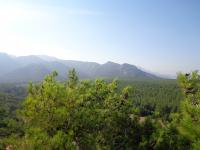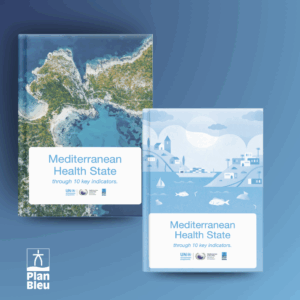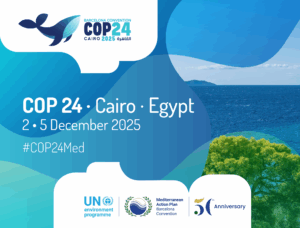
- Plan Bleu
Plan Bleu's missions
Make the Mediterranean a cooperation area for sustainable development
- themes
- projects
- Ressources
- publications
Last publications
- Events
In the news
Last events
- Plan Bleu
Plan Bleu's missions
Make the Mediterranean a cooperation area for sustainable development

Providing socioeconomics insights for the appropriate management of Mediterranean resources

Facilitate a science – political and civil society interface

Supporting the transition towards a green and blue economy

Design possible futures for sustainable development

Observer of the environment and development to inform governments and the general public
- themes
- projects
- Ressources
- publications
Last publications
- Events
In the news
Last events

FFEM project – Component 2
Objective
This project’s component aims at assessing the socio-economic value of goods and services provided by Mediterranean forest ecosystems, in order to help stakeholders in the decision process, and to reinforce the actions taken toward sustainable management of forest ecosystems.
Learn more
- Mediterranean forests:Towards a better recognition of the economic and social value of goods and services through participative governance
- Technical report: Methods and tools for socio-economic assessment of goods and services provided by Mediterranean forest ecosystems
- Methodological guide: factsheets and tools. Socio-economic assessment of goods and services provided by Mediterranean forest ecosystems

Contribute to improving recognition of Mediterranean forest goods and services
Assessment approach of the socio-economic value of forest goods and services can contribute to increasing recognition of their importance, especially by the economic stakeholders.
It can inform decision-making process by:
- Providing a better understanding of the issues associated with these services (i.e. characterization and classification of ecosystem services, understanding of cost and benefit transfers between stakeholders);
- Raising awareness of various stakeholders, beyond foresters and environmentalists, on the importance of these services and fostering dialogue, thus promoting integration between the policies for various sectors ;
- Integrating the value of these services into socio-economic assessments of projects or policies impacting the forest ecosystem, and into macro-economic indicators (e.g. for national accounting), thereby facilitating the analysis of the impacts of changes in the provision of goods and services to users (how users’ “well-being” evolves according to the increase or decrease in the supply of a good or a service) depending on political choices that can change this availability.
However economic assessment must be used with caution and transparency, especially with regard to the assumptions made and the objectives selected.
Understand the changes and distribution of costs and benefits associated with the production of forest goods and services
- By focusing on the change in the socio-economic value of ecosystem services under various global changes scenarios (mainly associated with the impacts of climate change) and various management choices for ecosystems;
- By comparing the costs and benefits associated with the production of these services and analyzing their distribution among stakeholders.
To reach these objectives, the component 2 is divided into four phases: Phase 1:
Phase 1: Production of Mediterranean-region state of the art methods and tools for the socio-economic assessment of the goods and services supplied by an ecosystem (whether forest or not), and of methodologies to be implemented on pilot sites
- Production of a report and methodology sheets presenting a range of methods and tools used for the economic assessment of forest goods and services, their strengths and weaknesses with regards to specific Mediterranean context, and recommendations for the design methods and implementation of economic assessment studies in the pilot sites;
- For each country, definition of the economic assessment methodology to be adapted to the specificities of its pilot site, in particular during a national meeting.
Phase 2: Assessment of the socio-economic value of the goods and services supplied by the forest ecosystems of the selected pilot sites
Assessing the socio-economic value of goods and services supplied by the forest ecosystems of the 4 pilot sites to get quantitative results and to show the strengths and weaknesses of such a methodology to improve it before sharing it.
- Methods for the 4 pilot sites:
- National studies results:
- Regional workshop to support the implementation of the study, a few months after the launch of the on-site studies, to promote exchanges on the difficulties faced by the national team and methodological issues to be clarified. (Held in June 2014 in Tunis, Tunisia).
- Synthesis report to give a regional perspective to the issue and generalize the approach to the whole region
Phase 3: A regional workshop to share experiences among countries, institutions, and Mediterranean stakeholders (27th to 29th October 2015)
A regional workshop was organized from the 27th to the 29th October, 2015 in Nice, France, to encourage sharing of experiences and capacity-building, to further reflect on methodological approach. The countries’ focal points of the project, the thematic experts, the national experts in charge of the studies on the pilot sites, as well as the regional secretariat of the FAO Committee, Silva Mediterranea expert, participated in this workshop.
Component 2 – Countries’ thematic experts
- Azzi Assia, Algeria, Ministry of Agriculture and Rural Development, Forester engineer
- Tamim Zeina, Lebanon, Ministry of Agriculture
- Barrahioui Mouna, Maroc, High Commission for Water Resources, Forests and Desertification, Cadre DPSIC
- Dey Sassi, Tunisia, Ministry of agriculture, water ressources and fisheries
- Temerit Nilgün, General Directorate of Forestry Foreign Relations, Training and Research Department, Agricultural Engineer
Publications
events
News
Subscribe to the newsletter
Subscribe to Plan Bleu’s newsletter to stay updated



-
Plan Bleu
Tour la Marseillaise
2 bis, Boulevard Euroméditerranée
Quai d'Arenc
13002 Marseille - France - [email protected]
- +33 (0)6 43 08 20 23







